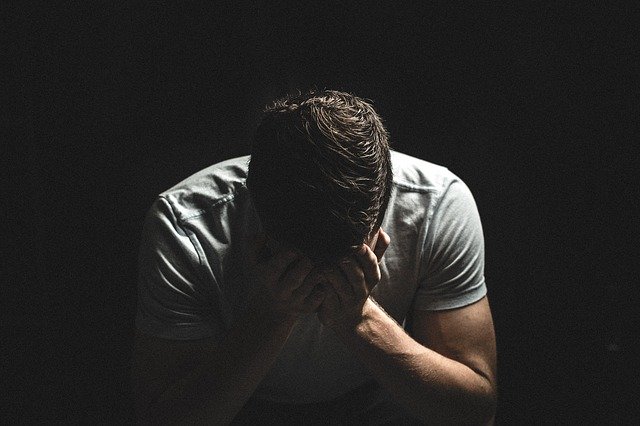What Are the Long-Term Effects of Trauma?
There are so many ways we can be exposed to trauma in our daily lives. There are situations like abuse, accidents on the roadway, and crimes as examples. Losing a loved one is traumatic, and right now much of the world is facing trauma through the Covid-19 outbreak.
Just looking at the example of car accidents, it’s estimated that around one-third of people involved in accidents that aren’t deadly have post-traumatic stress disorder, as well as ongoing anxiety and depression and phobias a year after their accident.
What a lot of people don’t even realize is how much they might be affected by trauma throughout their lives.
With the Covid-19 pandemic, there are multifactorial effects, including the fear of the disease itself but also the economic effects, so this could be something people are dealing with for years to come, trauma-wise.
Even beyond those effects are the issues with isolation people are experiencing because they are required to stay at home. People are lacking the social support they need to navigate a difficult situation, furthering the trauma induced by the outbreak of Covid-19.
With that in mind, it could be a good time for all of us to gain a greater understanding of trauma and the long-term effects it might have on us.
What is Trauma?
Traumatic events can be very far-reaching, and they may include things you wouldn’t ordinarily think about. We often think about trauma as being related to abuse or violence, but it can be so much more than that.
Beyond the childhood events we think of as being traumatic, there are situations like having a chronic illness or getting a disease diagnosis.
If you have an underlying mental health disorder such as anxiety or depression, you may be even more affected by trauma.
When you initially experience a traumatic event, particularly if it’s one that is acute or happens very quickly and is short-term, you may have a fight-or-flight response. This is the case in an instance, such as a car accident.
When you’re in a fight-or-flight response, your body produces chemicals that create symptoms like increased blood pressure, raised heart rate and sweating.
Immediately following a traumatic event, you might then move into a period of shock and denial.
Following shock and denial, next might come sadness, guilt, and anger.
It’s normal to experience all of these following trauma, but if the effects are more long-lasting, it can represent a serious mental health issue.
Other initial effects of trauma can include confusion, exhaustion, and agitation.
Emotional Effects of Trauma
After someone experiences trauma, the emotional effects can be both short- and long-term.
Initially and long-term emotional effects can include anger, sadness, fear, and shame.
For other people, the emotional effects may be more of a blunting of how they feel. Some people might act as if they don’t have any feelings related to their trauma, and they may become numb or emotionless.
Trauma survivors may also have problems regulating all of their emotions, and this is especially common when trauma occurs at an earlier age.
For older people who experience trauma, they may have shorter-lived emotional regulation issues.
This may turn into substance abuse as part of an attempt to regulate their emotions.
Along with substance abuse, other risky behaviors that may stem from trauma as part of an attempt to regulate emotions include binge eating or risky sexual behaviors.
Physical Effects of Trauma
Your body and physical health can be very much impacted by the physical effects of trauma.
Most experts believe that your body goes through biological changes when you’re facing extreme stress. You’re producing more adrenaline, for example, and if you’re regularly having these biological changes it puts wear and tear on your body.
Someone who’s faced chronic stress in their life may be more likely to have negative health effects.
Chronic stress can lead to inflammation, and inflammation is linked with most serious and chronic illnesses including heart disease and autoimmune disease.
Even in the short-term, trauma can lead to lethargy, brain fog, and fatigue.
Getting Help for Trauma
If you’ve experienced trauma in your life, and especially if you think it’s having long-term effects on you, you need to find help.
There are barriers to getting help, though.
For example, one of the most common effects of trauma is avoidance, so it makes sense that if you’re avoiding your trauma, then you’re also avoiding getting help.
You may even feel fearful of facing the trauma when you go to a counselor or therapist.
Another barrier is denial. You might recognize trauma occurred, but you don’t recognize the effects it’s having on you.
You may want to normalize your experiences, too, especially if they were related to abuse or violence.
Help is available, though, and it can shift your mental and physical health outcomes.
The recommended course of action for many people is to talk with a therapist. The sooner you do that, the better.
For example, if you feel like you’re experiencing trauma right now because of Covid-19, think about seeking tele-counseling from your home.
Exposure therapy is one particular form of treatment counselors use. Other types of treatment can include medication or different types of talk therapy.
To combat the effects of trauma on your body and mind, you also need to take care of yourself.
Do things that help your mind and body overcome chronic stress and inflammation such as yoga and meditation. Exercise is also critical.
Finally, build a support system for yourself and let people who love you into your life. Having strong social ties with friends and family is what’s ultimately going to help you improve your mental health.
At a time when many people are facing trauma from all angles, understanding its effects and how to get help can be so critical. Be gentle with yourself, but also be cognizant of how you’re feeling and why you might be feeling those ways.

